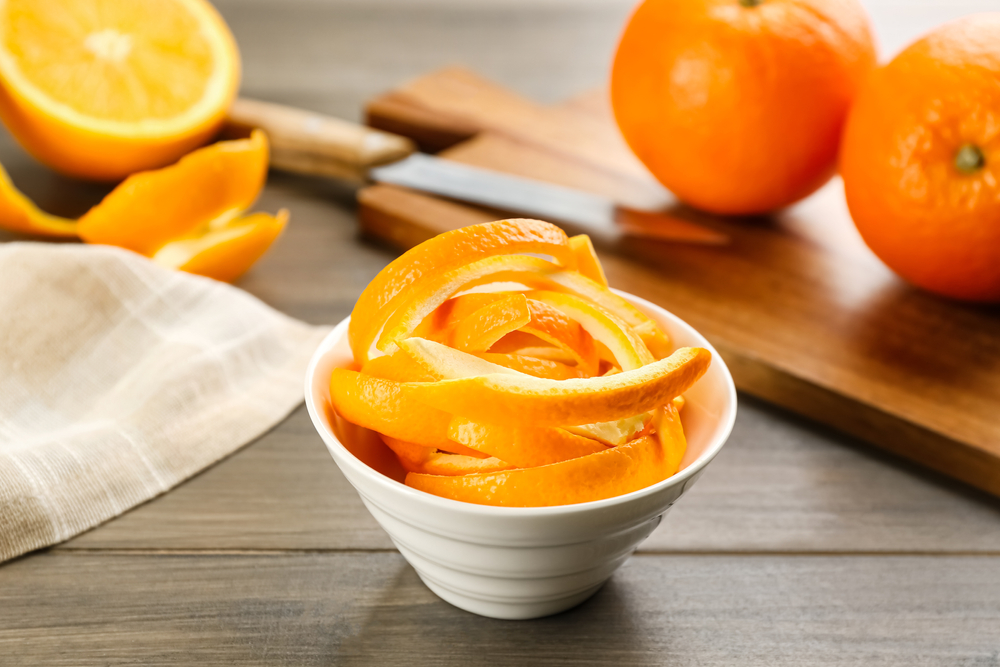Scientists discover the citrus waste in your kitchen could transform cardiovascular medicine
The humble orange peel, routinely tossed into garbage bins across America, is emerging as an unexpected champion in the battle against heart disease. What nutritionists and cardiologists once dismissed as mere kitchen scraps now stands at the forefront of cardiovascular research, promising to revolutionize how we approach heart health.
University of Florida researchers have unveiled compelling evidence that orange peel compounds possess remarkable cardiovascular benefits, fundamentally challenging our understanding of food waste and therapeutic potential. These findings suggest that millions of Americans have been unknowingly discarding a powerful ally in their fight against the nation’s leading killer.
The discovery comes at a critical time when heart disease claims approximately 697,000 lives annually in the United States, according to the Centers for Disease Control and Prevention. Traditional treatments, while effective, often come with significant side effects and costs. The prospect of harnessing orange peel’s natural compounds offers a refreshing alternative that could democratize heart health management.
The Science Behind Orange Peel’s Power
The key lies in orange peel’s complex chemical composition. These compounds don’t merely provide isolated benefits; they orchestrate a sophisticated biological symphony that impacts multiple cardiovascular pathways simultaneously. The peel contains flavonoids, phenolic acids, and essential oils that work synergistically to promote heart health.
Unlike synthetic medications that target single pathways, orange peel compounds operate through multiple mechanisms. They influence inflammation markers, support healthy blood vessel function, and interact with cellular processes that regulate cardiovascular stress responses. This multifaceted approach mirrors the complexity of heart disease itself, potentially offering more comprehensive protection than traditional single-target therapies.
Microbiome: The Heart’s Hidden Connection
Perhaps the most revolutionary aspect of orange peel research involves its profound impact on gut microbiome composition. The gut-heart axis, a concept gaining significant traction in medical circles, suggests that intestinal bacterial populations directly influence cardiovascular health outcomes.
Orange peel compounds act as selective modulators, promoting beneficial bacterial strains while suppressing harmful ones. This targeted approach creates an internal environment conducive to optimal heart function. The gut microbiome regulates cholesterol metabolism, blood pressure mechanisms, and inflammatory responses—all critical factors in cardiovascular disease development.
Recent clinical observations indicate that individuals with diverse, healthy gut microbiomes demonstrate significantly lower rates of heart disease. Orange peel extract appears to cultivate this beneficial diversity, essentially rewiring the body’s internal ecosystem to favor cardiovascular wellness.
Breaking Down the TMAO Threat
One of the most significant breakthroughs involves orange peel’s ability to combat trimethylamine N-oxide (TMAO), a compound that has emerged as a major cardiovascular risk factor. TMAO forms when gut bacteria metabolize dietary nutrients commonly found in red meat, eggs, and dairy products.
Elevated TMAO levels accelerate arterial plaque formation, creating the foundation for heart attacks and strokes. Traditional dietary recommendations focused on reducing cholesterol intake, but TMAO represents a more nuanced understanding of how food interacts with our internal biology.
Orange peel compounds specifically inhibit the enzymes responsible for TMAO production, effectively short-circuiting this dangerous pathway. This targeted intervention represents a sophisticated approach to cardiovascular protection that works at the molecular level rather than relying on broad dietary restrictions.
Practical Applications and Future Directions
The transition from laboratory discovery to practical application requires careful consideration of dosage, formulation, and delivery methods. Researchers are exploring various approaches to make orange peel compounds accessible to consumers while maintaining their therapeutic potency.
Functional foods represent the most promising avenue for widespread implementation. Orange peel extract could be incorporated into beverages, snacks, and supplements, making heart-healthy compounds as convenient as morning coffee. This approach aligns with consumer preferences for natural, food-based health solutions.
The supplement industry has already begun developing concentrated orange peel extracts, though standardization remains a challenge. Different extraction methods yield varying concentrations of active compounds, making it difficult for consumers to determine optimal dosing strategies.
Healthcare providers are beginning to recognize orange peel’s potential as a complementary therapy. While not intended to replace established treatments, these compounds could enhance existing cardiovascular interventions while reducing reliance on pharmaceutical approaches.
Economic and Environmental Impact
The orange peel revolution extends beyond health benefits to encompass significant economic and environmental advantages. The United States generates approximately 5 million tons of citrus waste annually, most of which ends up in landfills or composting facilities.
Converting this waste stream into valuable health products could create new revenue streams for citrus producers while reducing environmental burden. Food manufacturers are exploring innovative ways to incorporate orange peel compounds into existing product lines, from fortified breakfast cereals to enhanced beverages.
The global market for functional foods continues expanding, with consumers increasingly seeking products that provide health benefits beyond basic nutrition. Orange peel compounds could capture a significant portion of this growing market while delivering genuine cardiovascular benefits.
The future of heart health may well depend on our ability to recognize and harness the therapeutic potential hiding in plain sight. Orange peels, once considered worthless waste, now stand poised to transform cardiovascular medicine through their unique combination of accessibility, effectiveness, and natural origin.















